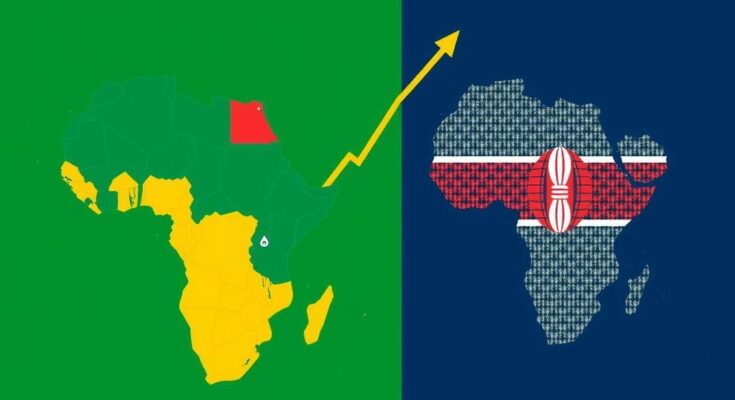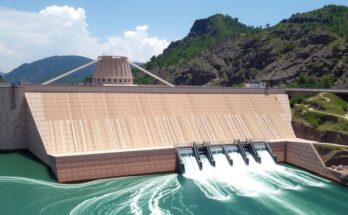Kenya and the Democratic Republic of Congo are set to benefit significantly from recent IMF reforms that provide enhanced access to concessional funding and reduce debt servicing costs. These changes include increased borrowing limits and the elimination of surcharges for certain countries, contributing to a financial relief of $1.2 billion annually. Both nations are among the top borrowers from the IMF’s zero-interest lending facility and face critical economic challenges exacerbated by the COVID-19 pandemic. Experts view these reforms as necessary but urge for more steadfast support in addressing deeper economic issues.
The Democratic Republic of Congo (DRC) and Kenya are emerging as major beneficiaries of recent reforms instituted by the International Monetary Fund (IMF) and the World Bank aimed at addressing financial challenges faced by low-income nations. These reforms grant enhanced access to concessional funding, coupled with a reprieve on debt servicing costs, thus significantly aiding in their financial recovery. During the annual meetings in Marrakesh, Morocco, World Bank President Ajay Banga committed to alterations that primarily support impoverished and highly indebted African states. A significant development announced by the IMF has relieved seven countries—including Kenya—from incurring surcharges associated with borrowing from the General Resources Account, effectively increasing the borrowing limit from 187.5 percent to 300 percent of their quota. This adjustment drastically lowers the cost of debt servicing for the affected nations, with estimates suggesting a 36 percent reduction in IMF borrowing fees, amounting to approximately $1.2 billion annually. As of the beginning of 2023, Kenya had incurred around $4.6 million in surcharges, being the only nation in the region currently subjected to such fees. This financial relief arrives at a critical moment as Kenya grapples with burgeoning debt levels and rising interest rates, prompting a drive for fiscal prudence. The IMF also approved a reform that substantially increases funding available to the Poverty Reduction and Growth Trust (PRGT), from which both Kenya and the DRC significantly rely. The PRGT, which provides zero-interest loans to low-income countries, will see its annual fund increase to $3.8 billion to address the financial burdens exacerbated by the COVID-19 pandemic. Within the context of the PRGT, the DRC owes $2.1 billion, ranking as the second-highest borrower globally, while Kenya stands at third with an obligation of $1.6 billion. Other countries like Uganda and Tanzania also feature among the top borrowers from this facility. Though many economists commend these reforms as timely and necessary, they stress the need for the Bretton Woods institutions to enhance support for struggling African nations. Development economist Fadhel Kaboub remarked on the significant financial impact of the surcharges, suggesting they should have never been imposed on already burdened countries. He further added that the manner in which newly accessed funds from the IMF are deployed is critical, advocating for investment in sustainable development initiatives to alleviate longstanding economic challenges.
The Bretton Woods institutions, comprising the IMF and World Bank, play a crucial role in global financial stability and supporting low-income countries. In response to heightened economic challenges, particularly following the impact of the COVID-19 pandemic, both institutions have implemented reforms aimed at easing the financial burdens faced by highly indebted nations, notably in Africa. With increasing reliance on concessional funding, countries like Kenya and the DRC are at the forefront of benefiting from these changes, which include increased borrowing limits and the alleviation of surcharges on IMF loans. This is especially significant for nations grappling with debt distress and financial instability, requiring support for their economic recovery efforts and sustainable development.
The recent reforms led by the IMF and World Bank are set to provide substantial financial relief to Kenya and the DRC, allowing both nations to navigate their economic challenges more effectively. By increasing borrowing thresholds and alleviating surcharge costs, these changes aim to promote fiscal stability and support development in the affected countries. However, the effectiveness of these reforms hinges on strategic allocation of the funds to not only recover from the pandemic’s adverse effects but also to address underlying structural economic issues.
Original Source: www.theeastafrican.co.ke




